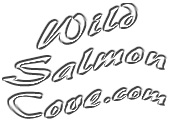Part 3 in this 4 part series – BC Fishers Made Scapegoats
In BC, all salmon fishers are required by the provincial government to pay a levy for each pound of fish they capture and deliver to processors big and small, or sell directly from their boats.
Processors, referred to as first buyers, are legally mandated and required to collect this tax on behalf of the BC Salmon Marking Council, and the Council is mandated to manage and use the money to improve and promote the wild salmon industry at home and around the world on behalf of the BC provincial government. It’s a complex circle of loopholes that even experienced industry pros have a very hard time following.
Over the last decade or so, when BC banks and credit unions quit lending money to independent fishers, opportunistic processors stepped in to provide funds and capitalize on a weak system. A desperate fisher who had a slow year and was about to lose his or her boat and livelihood had little choice but to go to large companies. On the surface it sounded like a good idea, but unfortunately it is too incestuous and poorly regulated.
In order to foster a healthy industry, a producer should not be a supplier’s direct competitor. It’s economics 101. Seafood processors should only compete with other processors, and fishers only with other fishers. When the free market paradigm shifts, as it has here, where one processor controls the aggregation of a large portion of the supply, as well as every production step along the chain right down to the ice for boat holds, it evolves into a monopoly that cultivates a propensity for wholesale price fixing, which is not healthy for any industry, and in this case especially, for already depleted salmon stocks.
It becomes troublesome when a considerable portion of the levy that small salmon fishers are required to pay is used by large processors to apply for grants that primarily benefit only large processors.
At international seafood shows, sales profit derived as a result of show promotion goes to large processors and brokers, and it is not shared proportionately with, or does it benefit independent fishers and smaller processors. Theoretically, it’s supposed to be an equitable exercise for the BC salmon industry overall, but practically it is impossible for it to roll out that way. Plus, there is another hidden layer that allows for an additional round of grant funding that promotes only canned salmon in Europe. Selling canned salmon in Europe does little for the independent salmon troller and gillnetter who pay a sizeable proportion of levies. It actually hurts this group as well as smaller processors who buy their salmon.
The Council is the “intermediary” that makes the grant application process possible. Regulations state that grant applications must be applied for and administered through a neutral organization like the BCSMC. Theoretically, it’s a democratic system designed to help everyone big and small. Practically though, it started out great twenty-five or so years ago, but it never kept up with the times. Fisheries need to be reinvented from the top down and improvements made that serve everyone equitably, including and especially our oceans and fish species.
Click here to read Part 4 in this 4 part series . . .

